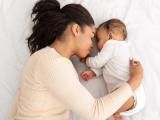Mar 27, 2007 (CIDRAP News) - Indonesia's health minister today announced her country would immediately resume sharing its H5N1 avian influenza virus samples with the World Health Organization (WHO), apparently ending a months-old impasse, say reports from Jakarta.
In return, the WHO promised that it would not share virus samples with commercial vaccine makers without permission from the source country, according to news services. That appeared to allay Indonesia's concern that virus samples from poor countries are used by commercial drug companies to make vaccines those countries can't afford to buy.
Speaking after 2 days of meetings with WHO officials and others, Indonesian Health Minister Siti Fadilah Supari said, "We will start sending bird flu samples to the World Health Organization immediately," the Associated Press (AP) reported.
The AP and Agence France-Presse (AFP) both reported that WHO officials said the agency would not provide virus samples to pharmaceutical firms without authorization from the country where the samples were collected.
But a WHO statement issued after the meeting sounded slightly less definite on that point. In the statement, David Heymann, acting director-general for communicable diseases, said best practices for virus sharing will be presented and debated at the World Health Assembly in May. Until then, "We will treat them [virus samples] in a manner that has been agreed until the terms of reference are in place, which means we will develop vaccine seed viruses and will share the virus with manufacturers after consultation with the [Indonesian] Health Minister."
Indonesia announced in February that it had suspended sharing H5N1 samples with the WHO and would provide no more without a guarantee that the samples would not be used by private companies to make vaccines priced out of Indonesia's reach.
The country's stance spurred mixed reactions. Many in public health were alarmed, since access to H5N1 samples is deemed essential for monitoring the virus's evolution and spread, assessing its communicability and susceptibility to antivirals, and developing vaccines. However, other countries and health experts sympathized with the plight of Indonesia and other developing countries that are least able to afford pandemic flu vaccines.
"We have struck a balance between the need to continue the sharing of influenza viruses for risk assessment and for vaccine development, and the need to help ensure that developing countries benefit from sharing without compromising global public health security," Heymann said in the WHO statement.
A Reuters story quoted Supari as saying, "We have now agreed with WHO and other member states of WHO on a timetable to make the changes necessary to accomplish our objective of achieving equitable and affordable access to vaccines for developing countries around the world."
In the WHO statement, Heymann said standard procedures for sharing seed viruses with pharmaceutical companies will be outlined in revised "terms of reference" for WHO collaborating laboratories. The terms of reference will spell out exactly what the labs can do with the viruses they receive.
He said the document "will, we believe, permit WHO to receive shared viruses for risk assessment, to develop noncommercial diagnostic tets and to characterize the viruses in addition to preparing seed strains for vaccine. Those seed strains will then be shared with pharmaceutical companies to develop vaccine, and that mechanism will be outlined in the Terms of Reference of the WHO Collaborating Centres."
Heymann also commented, "If countries want to negotiate for vaccine with companies, that's perfectly within their domain. Industrialized countries negotiate regularly for vaccine and developing countries can certainly do the same."
In February Indonesia said it had reached a tentative agreement with Baxter Healthcare, a US drug company, to provide virus samples in return for the company's help with vaccine production.
The Jakarta meeting, organized by the WHO and hosted by Indonesia, was attended by officials from about 20 countries that have had human or animal H5N1 outbreaks, senior scientists, and directors of WHO collaborating centers, along with representatives of the Asian Development Bank and nonprofit groups.
All other delegates at the meeting agreed to continue sharing H5N1 samples, Heymann said. Also, he said the group endorsed WHO's proposals to build a vaccine stockpile for developing countries, strengthen national laboratory capacity and surveillance activity, and help developing countries connect with vaccine makers to build regional manufacturing facilities.
The WHO said last week that projects to establish flu-vaccine manufacturing capacities in up to six developing countries—four in Asia and two in Latin America—were "in the final stage of approval." Japan and the United States have provided $18 million toward the effort, the WHO said.
See also:
Mar 27 WHO statement
Mar 22 CIDRAP News story "WHO: Six developing countries may get flu vaccine plants"


















